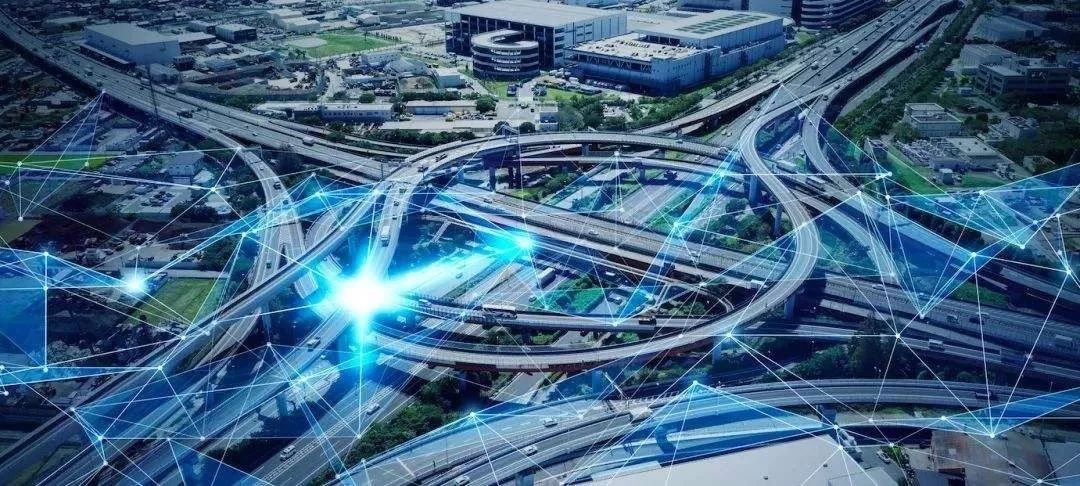- 2021-09-27 -

Transportation is a crucial sector for new infrastructure development. Recently, the Ministry of Transport issued the Action Plan for New Infrastructure Construction in the Transportation Sector (2021-2025)(hereinafter referred to as the Action Plan). Officials from the Ministry provided details at a press conference held by the State Council Information Office on September 26.
"The Action Planfocuses on promoting high-quality development in transportation, with digitalization, networking, and intelligence as the main themes. It aims to enhance efficiency, expand functionality, and inject new momentum into the sector," said Fan Zhenyu, spokesperson for the Ministry of Transport and head of the Comprehensive Planning Department. "By 2025, we will build a number of key transportation infrastructure projects, develop replicable application scenarios, and formulate or revise technical standards. This will significantly improve capabilities in precise perception, accurate analysis, refined management, and attentive service, while enhancing the operational efficiency, safety, and service quality of transportation infrastructure."
The Action Planoutlines seven major construction initiatives:
1.Smart Highway Construction
Leveraging major highways such as the Beijing-Hong Kong-Macao Expressway, Beijing-Xiong'an Expressway, and Chengdu-Chongqing Expressway, as well as long-span bridges and tunnels like the Shenzhen-Zhongshan Link and the Qinling Tunnel Group, smart highway projects will be implemented. These efforts will enhance the full lifecycle digitalization of highway infrastructure and improve inspection, monitoring, and early warning capabilities for existing structures. Additionally, targeted emergency alerts and integrated travel services will be promoted, and service areas will be upgraded with intelligent features.
2.Smart Waterway Construction
High-grade waterways such as the Yangtze River trunk line, the Beijing-Hangzhou Grand Canal, and the Wu River will be equipped with advanced monitoring systems. Coverage of electronic navigation charts for inland waterways will be expanded to improve operational support, coordinated supervision, and comprehensive service capabilities.
3.Smart Port Construction
Container terminals at ports like Xiamen, Ningbo-Zhoushan, and Dalian will undergo intelligent upgrades. New-generation automated terminals will be built at Tianjin Port, Suzhou Port, and Beibu Gulf Port, with large-scale deployment of unmanned container trucks.
4.Smart Hub Construction
Integrated smart passenger hubs, such as Jinan Airport, Changsha Airport, and Chongqing East Railway Station, will be developed to facilitate seamless transfers. Electronic ticketing will be widely adopted, and cross-transport security check mutual recognition will be promoted. Smart freight hubs (logistics parks) will be piloted in Beijing, Hebei, and other regions.
5.Transportation Information Infrastructure Construction
A "data brain" for comprehensive transportation will be established, accelerating the development of the National Integrated Transportation Information Platform. This will create a framework centered on the ministry-level big data hub, connecting provincial-level transportation data centers.
6.Transportation Innovation Infrastructure Construction
Major scientific projects, such as the long-term performance observation network for transportation infrastructure, will be advanced to boost technological innovation capabilities.
7.Standardization and Regulatory Improvements
A standards framework for new infrastructure will be refined, with accelerated research and formulation of critical national and industry standards.
This year, the Ministry of Transport has launched 12 initiatives to better serve public needs. Sun Wenjian, spokesperson for the Ministry and head of the Policy Research Office, noted that three initiatives—renovation of aging and hazardous highway bridges, self-service maritime government service stations, and the "Smooth Transportation" initiative for cross-border e-commerce cargo—have already been completed. The remaining nine are progressing steadily.
For "Convenient Taxi Services for the Elderly," local transport authorities are promoting the adoption of the 95128 taxi-hailing hotline, which will cover 100 cities by year-end. Major ride-hailing platforms have launched "one-click call" services in nearly 300 cities, completing over 15 million trips for more than 660,000 elderly passengers. Under the "Highway Restroom Revolution," 2,393 expressway service areas and 109 national and provincial highway service areas have upgraded their restrooms as of August. For the "Green Travel Endurance Project," 439 new charging stations have been added to expressway service areas, bringing the total to 10,836, while 95 additional service areas now offer charging facilities, raising the total to 2,318.
© Toehold Engineering Technology Co., Ltd.Shanghai